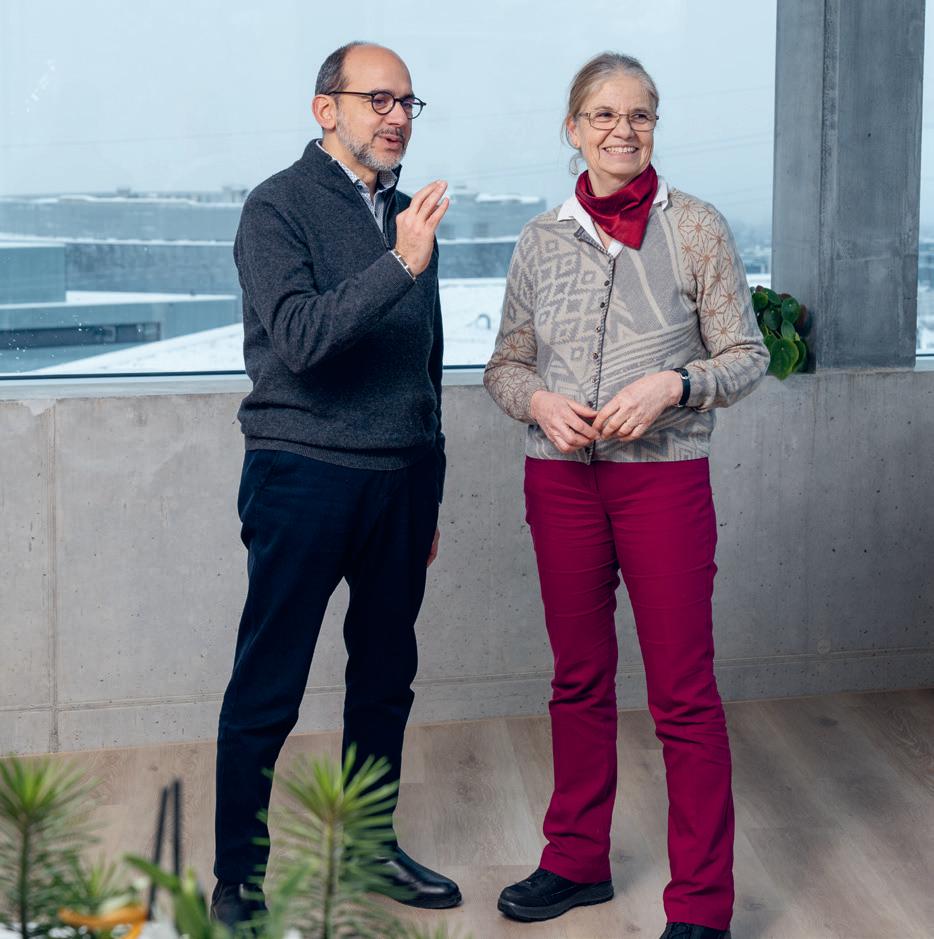
9 minute read
The past, the present and the future
Eighteen years have passed since Biopôle SA was founded by the public authorities of the canton of Vaud. What was initially planned to be a life sciences hub has become a dynamic community, in which collaboration – the raison d’être of Biopôle – is not just a consequence but a reason for members to join. We met Nouria Hernandez, the President of Biopôle SA’s Board, and Nasri Nahas, Biopôle SA’s CEO, two figures who have provided the impetus for this change, to understand the past, the present and what we can expect from 2023.
Distinguished molecular biology researcher and former Rector of UNIL Nouria Hernandez joined the Biopôle SA Board in 2016 and has been the elected President of the Board since 2020. Nasri Nahas joined Biopôle SA as CEO in late 2015. After leading life sciences companies in France and Switzerland for more than two decades, he built an entire new team to build his vision of a life sciences community.
Advertisement
Nouria, having worked abroad for several years, why do you think life sciences companies seek to become established in Switzerland? There are many reasons why a life sciences company might want to base itself here. Switzerland has many strong universities and the best university hospital in the country, the CHUV, is right here in Lausanne – it was ranked 9th in the world in 2021 and 11th in 2022. That echoes the result of our survey of the Biopôle community this year, where our CEOs stated that talent acquisition is among their top priorities. I also think that the cantonal authorities in Vaud have a strong desire to support life sciences in general and innovation in particular and therefore invest in organisations that encourage them. Our region also has a huge diversity of institutions dedicated to life sciences, and they all collaborate with each other. That is an unbelievable strength. Not to mention the beauty of the place – it’s exceptionally pretty on the shores of Lake Geneva.
authorities in have a strong desire to support life sciences in general and innovation in particular."
What role does Biopôle SA play in life sciences here?
Biopôle SA has created a campus where you have academic institutions and companies side by side. But they don't just coexist; they also collaborate and interact – because Biopôle SA devises events that favour interaction, which is very important because that’s often how ideas are born. Biopôle SA also does a lot to help very young companies launch and survive. One example is StartLab, which is entirely equipped to do experiments and thus suited to encouraging young entrepreneurs to make the move from academia to entrepreneurship.
It also gives a lot to the academic world. Biopôle SA helps create links with business because it understands the needs of both companies and academic institutions, and what they mutually have to offer to each other. Biopôle SA is therefore in a unique position to identify opportunities for collaboration and then act as an intermediary. For example, Biopôle arranged for companies to have access to UNIL’s technological platforms. And of course, the campus also provides jobs for the universities’ graduates.
Biopôle brings to the region a unique place for companies to thrive. It offers an ecosystem rich in diversity, home to experts in medtech, digital health, diagnostics, pharma and biotech. It’s a place where academic, clinical and industry research converge, and big companies and SMEs meet young start-ups and scale-ups.
What is Biopôle SA’s role on campus and how has it changed?
We’re here to listen and facilitate. We’re here for our members – we make sure they can focus on their innovation, which I believe is about taking a brilliant idea to market. That is where Biopôle SA and our networks come into play. We help them find the right partners, connect with the right clinics and raise the funds they need. And that was one of the surprises we had along the way; I never thought the need for networking and for innovation – in the sense of putting people together and connecting the dots –would be so great.
much practical experience. Alongside that, people who are in a relationship often look for jobs in the same place, which can be tough. Luckily, we have a lot of opportunities here in Vaud, which makes it easier for couples who are researchers to find work.
Once you’ve got that first job, the trick is to stay on top of your field because knowledge advances really quickly these days. You also need to balance your professional and private lives and give time to both to avoid burning out.
What is the greatest challenge for an entrepreneur working in life sciences today, and how do you help?
It’s very difficult to differentiate yourself today. The life sciences are booming and investors have a lot of choices. So entrepreneurs need an idea that will make an impact and one that will really make sense to the patient or end users. Through our network, we try to help our young companies focus and understand where they are, where they can be and what is missing to make an impact and differentiate. What are the next steps? Not for their innovation or their technological challenge per se, but for their market challenge – their business challenge. What is needed for their brilliant idea to make an impact?
What challenges do young life sciences researchers face today?
Initially, the challenge is to find your first job because, coming from the academic world, you know a huge number of things but you don't have
We help them to work with the right people, to find the right investors. Sometimes our companies spend a lot of time searching for money, just not in the right spot. Occasionally, we have to tell them they’re not ready to speak to investors yet. We try to connect them with political or academic partners that could help them.
In your opinion, what is the future of life sciences?
I feel that digitalisation is going to play a key role. It will keep patients at home and out of hospitals. People will be treated as trusted citizens, real actors in their own health, so we’ll move away from the traditional top-down approach. Also, since one size doesn’t fit all, I think there will be more and more personalised medicines.
We can do more for patients. On the one hand, we have personalised, precision medicine, but on the other, we risk the healthcare system becoming more and more impersonal. We have to be careful because patients need to be listened to. Because of this, I believe that patient groups and organisations are going to grow and acquire more influence.
Patients also know more than ever about their diseases and medicine in general because they have access to a huge amount of information that wasn’t always readily available before. I think we have to take that into account.
Finally, a lot could be done to help develop drugs that are useful to only a small proportion of the population. Companies don’t develop them because they’re not commercially viable, but I think there is space here for some kind of system to develop drugs that could change those people’s lives.
What are your ambitions for Biopôle SA in 2023?
In 2023, we will offer more of the same progress, with the launch of new infrastructures and programmes and a special focus on our corporate partners and their networking with our community. On the other hand, we will initiate a new focus on investors. Also, we will be taking time to consider our corporate social responsibility compliance, reflecting not only on Biopôle SA, but also on the campus and shared infrastructure, so we can lead the way for our members and support them. Our health is directly linked to the environments in which we live and work – you cannot be a life sciences community and claim not to care about the wider picture.
In your opinion, what is the future of Biopôle?
As Nasri points out, our society faces another challenge linked to health: the climate. Biopôle SA is well aware of that, so any new venture that is developed will have to benefit society in general while also being compatible with Switzerland’s climate-related goals. If things continue to go as well as they are going now, Biopôle SA will have opportunities to invest in new ventures. It will be an exciting challenge to come up with ideas on how to best serve health in a very broad sense!
In September 2000, a project called le Biopôle de Vennes is presented to the State Council of the canton of Vaud for the first time.
The original site plan with its surroundings, including the existing Centre des laboratoires d’Épalinges, Lausanne University Hospital (CHUV) and the University of Lausanne’s (UNIL) joint international centre for immunology, infectious diseases and vaccine research.

The first two buildings on the campus – Metio and Lysine, developed by EPIC Suisse – are inaugurated.

The first biotech and diagnostics companies set up their operations at Biopôle, including Xigen, Anergis, Legacy Healthcare, Mymetics, Unilabs and Adipogen.
In autumn 2003, Vaud’s Grand Council approves the Vennes-Biopole development. It will specialise in the health sector, particularly in highvalue-added activities in the medical sector.
The M2 metro line is completed. It is now possible to reach the city centre in less than ten minutes.

The canton of Vaud centralises biomedical research fromUNIL, CHUV and Ludwig Cancer Research on campus.
In December 2004, Biopôle SA is founded by the canton of Vaud public authorities. The shareholders are the canton of Vaud (97.5%), the city of Lausanne (1.25%) and the municipality of Épalinges (1.25%).
Phenyl – a new building developed by OROX Asset Management SA, part of Edmond de Rothschild REIM – is inaugurated.
New multinationals join Biopôle: Nestlé Health Science, ADC Therapeutics and ARIAD Pharmaceuticals (now Incyte).
October 2015, Biopôle SA’s board of directors appoints the current CEO, Nasri Nahas, to oversee a major reorganisation of the campus.
Biopôle hosts 20 life sciences companies.
Three more buildings, developed by various investors – Glycine (La Vaudoise), SE-D (OROX –now part of Edmond de Rothschild REIM) and Proline (EPIC Suisse) – are inaugurated.

The Institute of Social and Preventive Medicine, Unisanté, joins the campus.
Innovaud is created by the public authorities of the canton of Vaud. Its life sciences adviser finds a home at Biopôle.
In July 2016, Biopôle appoints a new board of directors: a key step in the validation of its new strategy and its repositioning as a leading life sciences community.
CHUV’s Cellular Manufacturing Facility, dedicated to immunotherapy treatments, is inaugurated.
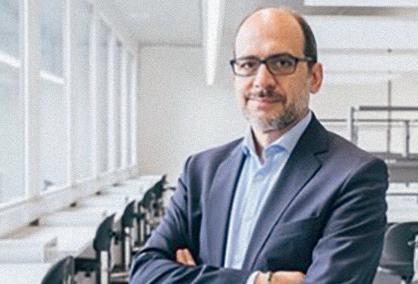
In March 2019, the Digital Health Hub (DH2) is launched to welcome companies working on digital health solutions.
The Alanine building developed by Retraites Populaires is completed. ADC Therapeutics raises US$200m and becomes one of the few unicorn private biotech startups in Europe, with a company valuation of US $ 1.3 billion.
The Biopôle Start-up Fund, with a total of CHF 500k per annum, is launched by Biopôle SA. Novostia and Genknowme are the first companies to enter the programme.
Biopôle SA supports the launch of Superlab Suisse’s first branch on campus. This partnership strengthens the support that Biopôle SA can offer its companies.
Ferring Pharmaceuticals opens the Ferring Biologics Innovation Centre at Biopôle.
StartLab, a fully equipped shared and serviced lab space, is launched by Biopôle SA. It can host up to 12 companies.

Glenmark Pharmaceuticals, now Ichnos Sciences, opens a major translational research and discovery centre at Biopôle.
The Serine building, developed by EPIC Suisse, is completed, bringing Biopôle SA’s total constructed surface to 54,000 m2
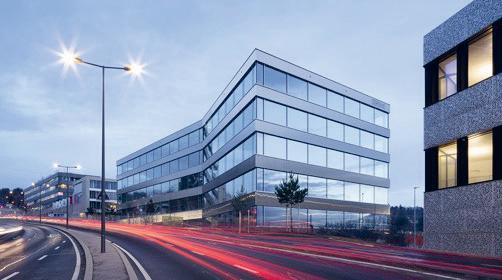
ADC Therapeutics joins NASDAQ.
Biopôle SA forms its first corporate partnerships, with CSL Behring and Clinique La Prairie. The aim of the programme is to connect corporates to the startup world.
The current President of Biopôle SA’s board of directors, Nouria Hernandez, is appointed in October 2020.
Bristol Myers Squibb and the Swiss Medical Network become Biopôle SA corporate partners.
Biopôle SA launches the Vanguard Accelerator. Biped, Impli and Gabi SmartCare are among the first start-ups supported.
The campus includes more than 90 life sciences companies and 15 service-oriented companies, with a total of 2,200 residents.
In September 2023, the Leucine building (developed by CPEV) is due to be inaugurated, offering an additional 9,500 m2.
Both StartLab and DH2 move to bigger spaces. StartLab can now host up to 20 companies.
Roche Diagnostics sets up a collaboration hub for their teams at Biopôle.
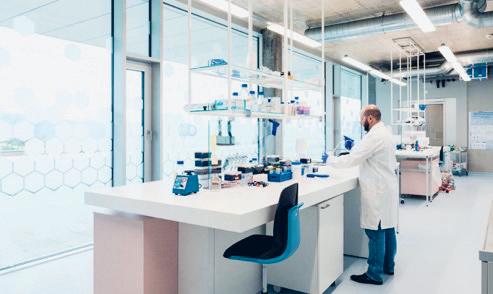
Ichnos joins Biopôle SA’s corporate partners.
Three new buildings, developed by Edmond de Rothschild ERRES, are due to be completed, providing a further 23,000 m2 of office and laboratory space.
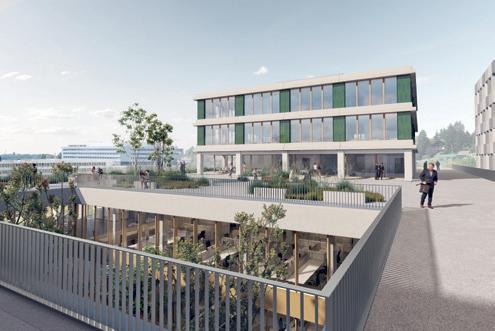

The SE-C building is due to be inaugurated. It will host laboratory and GMP (good manufacturing practice) facilities for CHUV, UNIL and Ludwig Cancer Research.
The Biopôle site should reach a total area of 100,000 m2, the equivalent of 19 football pitches, all dedicated to life sciences.






